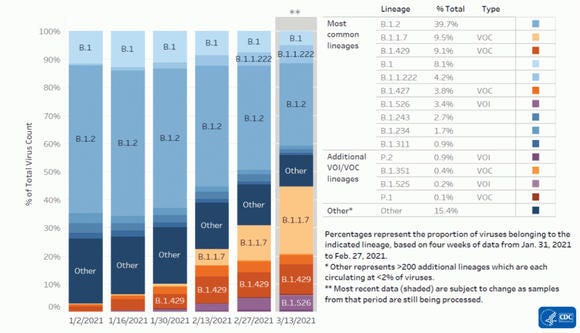Brazos valley scientists at Texas A&M University announced breaking news in the fight against Covid-19. The school discovered a new, potentially more contagious variant in a young student.
The new variant is being called, BV-1, referring to its origin in the Brazos Valley. Although only one case has been identified, scientists are watching closely as this new strain shows signs of resistance to immune system antibodies. A potentially vaccine-resistant Covid-19 variant creates new challenges for public health workers.
According to the press release, a Texas A&M student tested positive for Covid-19 on March 5th. Most labs reserve genetic sequencing for severe cases of Covid-19, but the research scientists at Texas A&M have taken a different approach by sequencing Covid strains from severe, mild, and asymptomatic infections.
Genetic sequencing provides public policymakers with more information to better guide health policy. This comprehensive approach enables the early detection of new health threats as the research team closely monitors the coronavirus circulating strains in Texas.
Testing has slowed in Texas but remains a critical element of our fight against the pandemic. Testing allows us to diagnose and treat those who have Covid-19. Testing enables health workers to do contact tracing and find others who may have been exposed. Testing with genetic sequencing provides information to the public health system to track trends in specific communities.
The CDC tracks the various coronavirus strains and categorizes them into lineages. The viral groups are then categorized as variants of concern (VOC) or variants of interest (VOI). At this point, BV-1 is uncategorized. The Uk strain, B.1.1.7, is the dominant strain in most states, including Texas. The B.1.1.7 variant accounts for 44.7% of the cases load in Texas.
SARS-CoV-2 Variants Circulating in the United States

Scientists track the emerging variants to better understand how easily they might be transmitted. They also monitor the variants response to our currently FDA-approved vaccines.
The B.1.1.7 variant first emerged in the UK during September 2020 but quickly became a dominant variant worldwide. It has a specific mutation in the receptor-binding domain (RBD) of the SARS-CoV-2 spike protein. This mutation makes it easier to spread. The UK reported evidence that the B.1.1.7 variant may be associated with an increased risk of death in January. Other early reports found no evidence that the B.1.1.7 variant impacted the severity of the disease. These reports also showed our vaccines are effective against B.1.1.7.
One case of Covid BV-1 may seem like no big deal. The discovery of the new variant raised eyebrows because Covid BV-1 may be resistant to antibodies. BV-1 has some genetic similarities to the B.1.1.7 variant (UK strain), which has proven to more contagious and potentially more dangerous. BV-1 also shares genetic markers with other coronavirus strains that can bypass neutralizing antibodies.
Sharing the discovery of the BV-1 variant is essential because of its genetic similarity to other coronavirus strains that can evade the immune system antibodies.
Antibodies are present in our bodies after natural infection or after vaccination. To reach herd immunity, enough people must have antibodies to prevent a virus from spreading. Data shows Covid-19 survivors generated antibodies after natural infection, and patients with a mild disease lose this protection faster than those who had a severe illness.
The Texas A&M University researchers provide large amounts of data to help Texas public health officials and the CDC monitor potential threats to our community. This data will be critically important as we move into the next phase of the pandemic and address the growing needs of those with post-Covid conditions.
A recent report shows one out of three Covid-19 survivors continue to have symptoms after their initial infection resolves. Stories about “Covid long haulers” are popping up worldwide.



